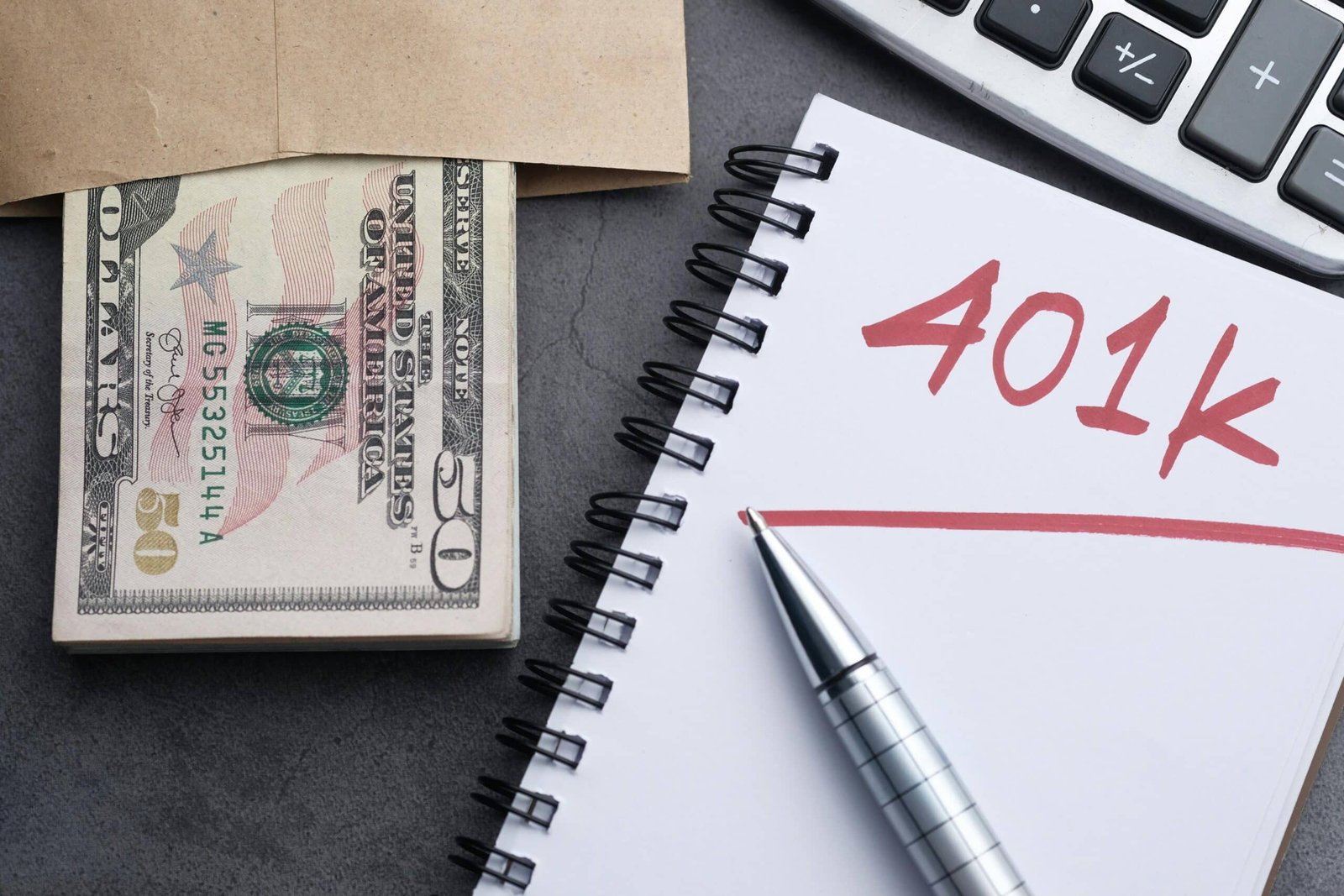Preparing for retirement might sound overwhelming, but with the right tools and education, you will be well on your way to financial stability. In discussions about retirement planning, one of the hallmarks that consistently arises is the 401(k) plan. This type of account has proved invaluable to retirement savings for decades, yet the economic landscape and investment options are always changing, so it makes sense that many workers may wonder: Am I still working with a sound 401(k) plan? We dive into this topic to give you a basis for decision-making in your financial journey.

One of the absolute factors to consider when engaging in retirement planning is your time horizon. The sooner you begin to save for retirement, the better position you will be in the long run. Compounding interest is your friend, and the sooner you start investing the more time your investments have to gain in value.
How about those in their 30s and 40s who have not even begun thinking of saving for retirement. It’s never too late to begin. Similarly, although you may have missed out on some growth potential, it is still crucial to begin saving early. Invest in a 401(k) or other retirement account if at all possible for the tax advantages and potentially matched funds from your employer.
Why a 401(k) Is So Important for Retirement
A 401(k) is available only through one’s employer and are essentially retirement savings plans. It refers to the pre-tax portion of the salary that an individual can defer directly into his or her 401(k) retirement-savings fund. One of the most powerful things a 401(k) offers is the opportunity to double your savings through employer matching contributions.
The 401(k) is still the most commonly offered, however, with it being accompanied by employer-matching contributions and tax breaks that IRAs or Roth IRAs can not offer. This comes in the form of a tax-deferral, which means you do not have to pay taxes on contributions made to a 401(k) until withdrawals are made during retirement. That way the money has time to be earning interest, and that interest can in turn into investing, which is a way to potentially save a lot of money.
Employers often provide a matching amount, contributing the same percentage as the employee. This is pretty much free money that can help your retirement savings grow a lot quicker. Please keep in mind not every employer offers a match, and the terms of that match can vary.
A 401(k) also can let you defer a larger amount of your earnings than many other retirement savings vehicles. This higher contribution limit is enabling people to save more for retirement, so they can realize their financial dreams faster.
There are investment options within the 401(k) plan. Most plans offer a variety of choices, such as mutual funds, stocks/bonds & target-date funds. This is helpful for those who want to invest with the long-term in mind and understand that high risk and reward factors in investments do exist. However, it is vitally important that you periodically review and update your investment asset allocation to ensure that it fits within your plan for retirement.
Along with the tax breaks and employer match, a 401(k) gives you the ability to have cash taken directly from your paycheck. It allows individuals to set up their contributions automatically to be deducted from their paycheck, which is a nice hands-off way to save for retirement. If people were doing this automatically then they would have no doubt be saving for retirement at a much more steady rate.
Finally, a 401(k) gives individuals the ability to save large amounts for retirement. The power of tax-deferred growth, employer matching contributions, larger contribution limits, investment options and automatic deductions can add up to significant savings over the long haul.
That allows people to be sure that they are financially secure and live a happy retirement. As with just about anything, the sooner you begin stocking away funds into a 401(k), the better. The sooner you start, the more time your money has to grow and compound along the way, and that can make a huge difference in how large a retirement nest egg you end up with.
Though, as the saying goes — better late than never. Just when you feel like you may be too late- every little bit helps! Whether it is a large number or small number. It is better than having nothing. In fact, beginning later might actually spur the impassioned saving on your end because you now know that you have a more limited timeframe to save and grow your nest egg.
However, remember that contribution limits for 401(k) plans may change over time. Each year the Internal Revenue Service (IRS) sets limits, so remaining up-to-date on those is necessary to get your contributions in. Although these limits serve as only a means, we suggest that you contribute as much as you can by taking into account your acceptable donation level. Pretend you’re trying to avoid running out of money in retirement. And if you have the ability to pay a bit more than the required minimum, that could make a big difference in how much you end up with.
Finally, review the investment choices available in your 401(k) plan. Many plans give you the option to invest in a variety of investments, such as mutual funds or target-date funds. Research each of these options, and select investments that suit your risk appetite and long-term objectives. And rebalance your portfolio as part of your ongoing investment strategy.
How Often You Should Monitor Your 401(k) Account
Keeping on top of your 401K balance is a key part of any retirement plan. That said, there is a fine line between keeping yourself informed and not making impulsive decisions due to the movement of short-term markets. Guide on How Often You Should Check Your 401(k) account
- Frequency: Employees should scrutinize their 401(k) account at least quarterly. You have visibility to your retirement savings, including your contributions, employer matches and account performance. Check up periodically on your account to make sure you are making progress toward your retirement objectives and adjust your investment strategy as needed.
- Annual Review: Evaluate your 401(k) account at least once a year. Instead, this is a chance to review your investment plan and adjust it as necessary so that your retirement savings can work towards accomplishing what you want in life. With the annual review, you can assess how your investments have performed and rebalance if necessary to ensure your portfolio is aligned with your retirement plans or any financial changes.
- Major Life Events: Any time you undergo a big life change (like getting a new job, changing marital status, or having children), you should take some time to go over your 401(k) account. The bottom line is that these events could necessitate changes to your retirement savings plan. For instance, if you switch employment, will you need to roll over your 401(k) into an IRA or move it to the retirement plan of your new employer. Likewise, getting married or starting a family can lead you to reconsider your financial objectives and adjust your investment strategies.
However, while keeping up to date with your retirement savings is crucial, you should not act on a whim due to the short term market moves. A retirement planning must always adhere to a long-term view of its investment strategy. Follow these rules and check up on your 401(k) account on a regular basis so you’re on the right path to retirement freedom.
This is just one piece of keeping an eye on how your 401(k) account will look, but don’t forget about the many other factors of your entire financial plan as well. This involves a review of your other retirement savings buckets (IRAs, pensions) and an evaluation of both your risk tolerance and time horizon.
Factors such as a financial advisor can offer you good advice on how to navigate your retirement savings route. They can assist you in determining what the right mix of assets should be for you, help diversify your investments and offer advice tailored to your situation.
What is also essential to remember is that planning for retirement is not something you do once, it’s a continuous affair. Your financial goals and your priorities change over time, as you move from one role to another. Taking stock of your 401(k) account periodically and tweaking your retirement savings strategy when necessary can help put you on the right path toward reaching your long-term ambitions.
Is Maxing Out Your 401(k) Worth It?
If you are truly able, also consider maxing out your 401(k) contributions. With the maximization of your contribution, you get the full tax benefits and potential matching contributions by your employer. That said, maxing out your 401(k) might mean a shortfall for other financial goals That includes paying off debt and building up an emergency fund.
Benefits of a 401(k)
Related To Tax Advantages: You make contributions in pre-tax dollars so your current income is not taxed.
Employer matching contributions: A fair amount of employers offer to match the contribution you make to your retirement fund as a way of incentivizing you to set more money in 401(k) so you have enough retirement funds for your golden years.
Automatic Contributions: Contributions are deducted directly from your paycheck to make it easy to save consistently. And you don’t have to think about it.
Cons of a 401(k)
Fewer Investment Options: 401(k) plans generally have fewer investment offerings than other types of retirement accounts.
Early Withdrawal Penalties: If you withdraw funds from your 401(k) before age 59 ½, there could be penalties and taxes.
Required Minimum Distributions (RMDs): Once you turn 72, you must start taking taxable distributions from your 401(k) each year. RMDs can complicate a tax plan.
So, in the grand scheme of retirement planning evolution, is the 401(k) relevant when considering your future? This means starting early, investing regularly, and keeping an eye on your investments—and it also reveals why retirement might be farther away than you hoped even if you take advantage of the tax benefits and match), which isn’t great news for most people. Make use of this invaluable option for your retirement planning.








